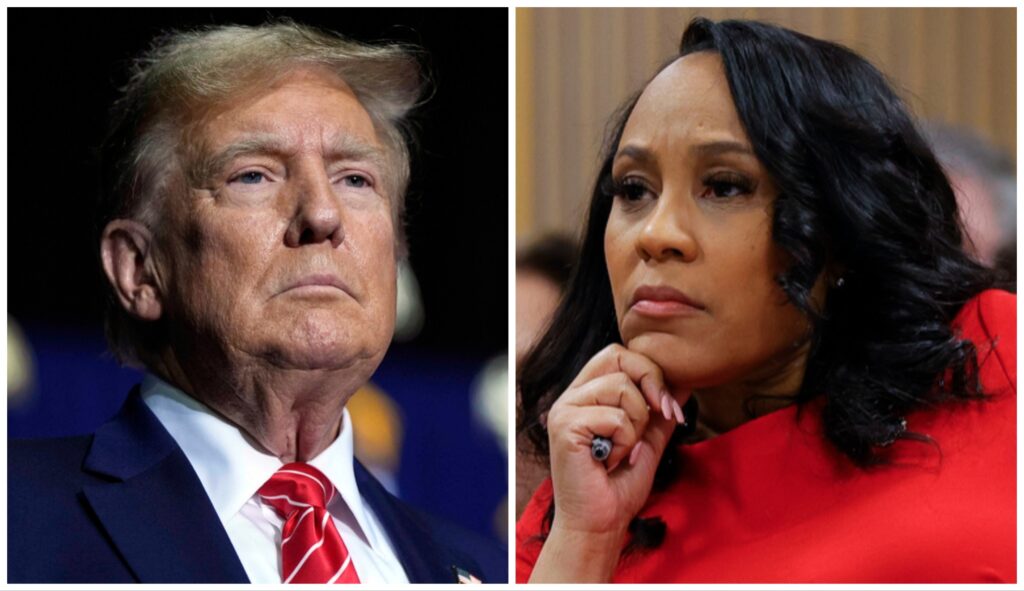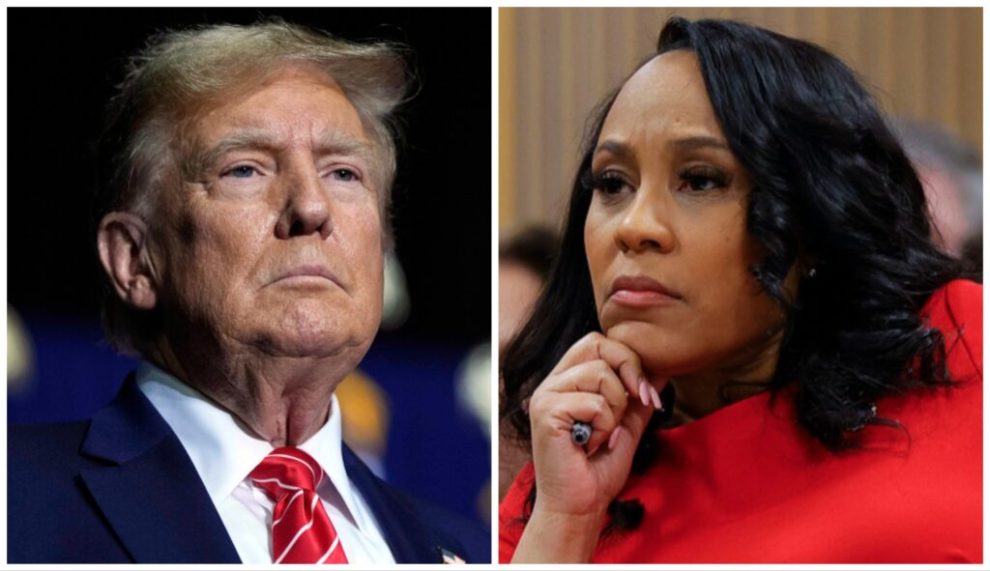An attorney for former President Donald Trump filed a reply brief to the Georgia Court of Appeals on Monday in his bid to disqualify Fulton County District Attorney Fani Willis from handling the sweeping racketeering case against Trump and others.
“President Trump’s legal team has filed a reply brief in the Georgia Court of Appeals persuasively rebutting the State’s arguments,” Steve Sadow, counsel for Trump, said in a statement to the Washington Examiner.

Sadow said the brief makes clear Willis should be “disqualified” due to his view that her “proven false, incendiary racial rhetoric in the church speech was calculated to heighten public condemnation of, and thereby prejudice, the defendants in eyes of potential jurors,” noting her public comments during a church sermon on Martin Luther King Jr. Day weekend “violated the Georgia Rules of Professional Conduct.”
Willis has faced criticism for her conduct during the case, including the speech at an Atlanta church, in which she suggested she was being targeted for removal due to her race. Judge Scott McAfee, overseeing the case at the trial level, described the speech as “improper” but did not consider it grounds for her disqualification.
Previously, Fulton County prosecutors argued that Willis’s speech was “vague” and did not imply whom she was speaking about when she referred to “scripture” that was being sent to her by individuals within the church.
“The Scripture they keep sending me is ‘No weapon formed against you shall prosper.’ I need y’all to hear me, though. They did not say the weapons will not form,” Willis said in February.
Sadow argued in his 22-page reply brief that the state’s “’interpretation’ of the speech (i.e., that Willis was vague, or that it was debatable to whom she referred) is disingenuous at best.”
“Willis’s purpose was plain: To obscure her misconduct by falsely accusing the defense of racism. Willis’s strategic use of pronouns was neither innocuous nor vague — Willis repeatedly used ‘them,’ ‘they,’ and linked these terms to her antagonist: ‘White male republicans,’” Sadow added.
The defense filing cited an opinion from former Georgia Supreme Court Justice Harold Nelson Hill, which Sadow believes supports the case’s dismissal. Hill’s opinion suggests that a court should disqualify a state’s attorney if their involvement could cause a reasonable potential for prejudice against the defendant. This standard, according to Hill, would protect defendants by focusing on the possibility of an unfair trial without requiring proof of actual harm.
Sadow argues that given the “extensive media coverage” surrounding the case, there is a substantial probability of unfair treatment against Trump. Willis has not yet responded to this latest filing, but her office has previously stated that she did not express any personal opinions about Trump’s guilt or discuss the specific details of the case in public.
Trump’s prosecutor removal effort was spurred by co-defendant Mike Roman, a Republican operative with a record of conducting opposition research. In January, Roman’s attorney filed a motion to disqualify Willis on the basis that she and then-special prosecutor Nathan Wade had improperly benefited from Wade’s role in the case while Willis and Wade were in a romantic relationship.
Willis and Wade did not deny their love affair but argued in lengthy hearings that nothing about the case was tainted and that Wade’s expenses for lavish trips they took together were reimbursed by Willis through undocumented cash payments. Wade has since resigned from the case after McAfee ordered either him or Willis to step aside.
The appeals court is slated to hear Trump’s appeal to disqualify Willis on Dec. 5, though Willis has urged the court to allow her case to move forward ahead of their oral arguments about whether she can remain on the case.
Willis brought the case against Trump last year after a special grand jury recommended Trump and his allies be indicted over an alleged attempt to subvert the 2020 election results in Georgia. The indictment focused in part on Trump’s early January 2021 phone call to Georgia Secretary of State Brad Raffensperger, during which Trump urged Raffensperger to “find” enough votes to change the election outcome. The case also includes an alleged plan to present an alternate slate of pro-Trump electors to the Electoral College.
CLICK HERE TO READ MORE FROM THE WASHINGTON EXAMINER
It is currently unclear when or even if the case will proceed to trial.
Although Trump cannot pardon himself from state-level offenses, legal experts have suggested the trial could be delayed if Trump were to win the presidential election until after his four-year term. Even larger questions linger about whether the case would still move forward after such an extended period of time.
























